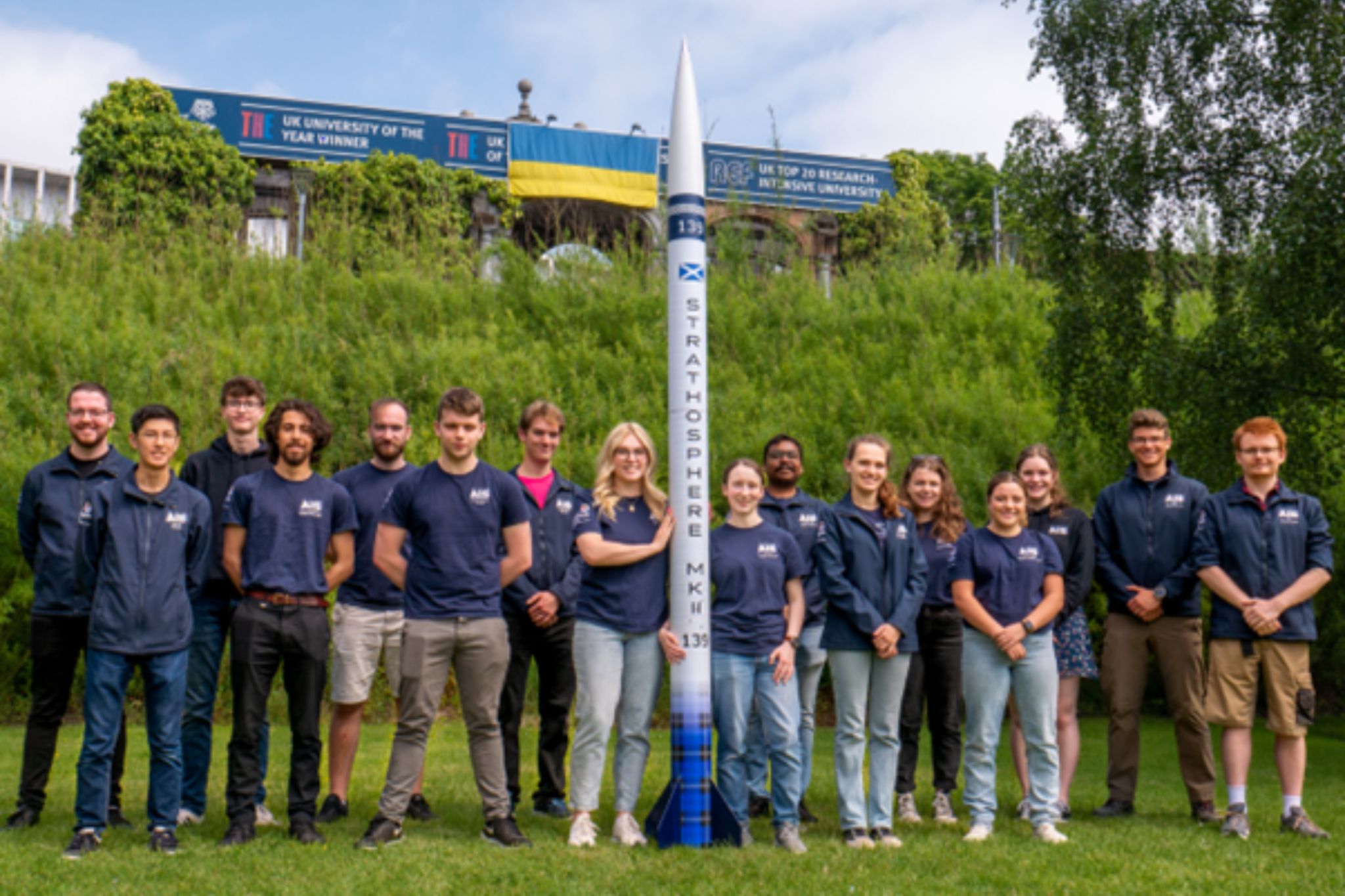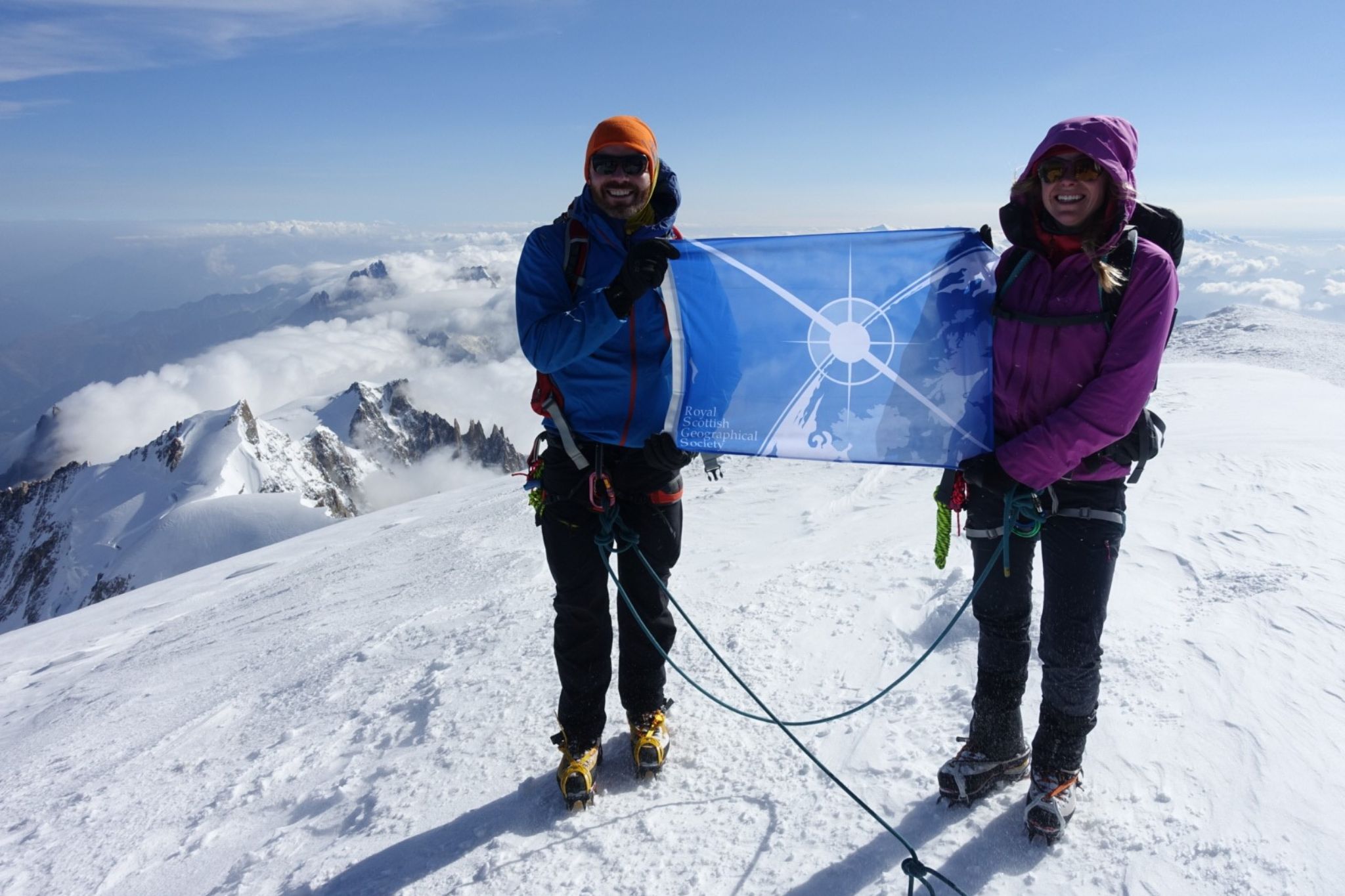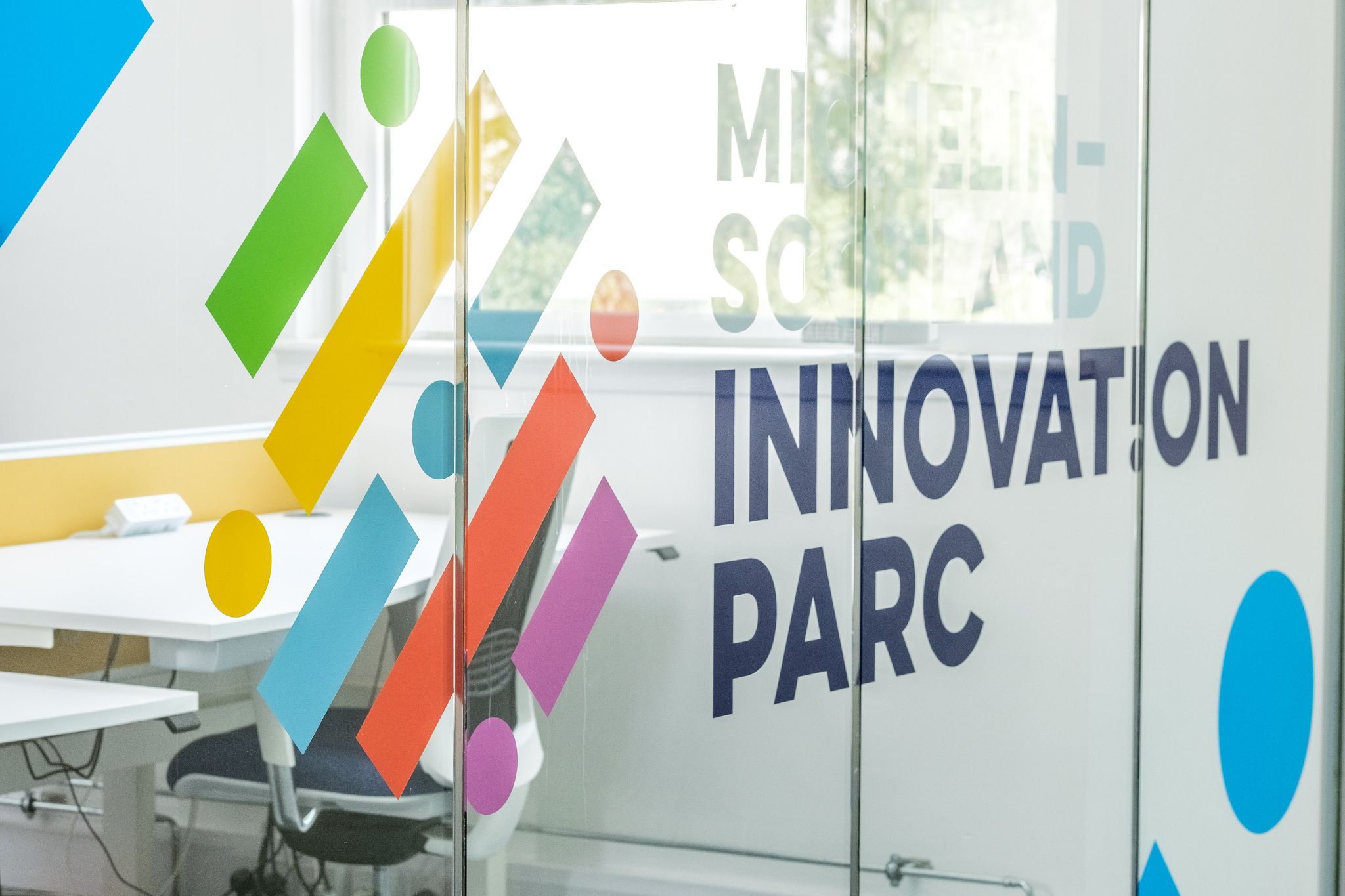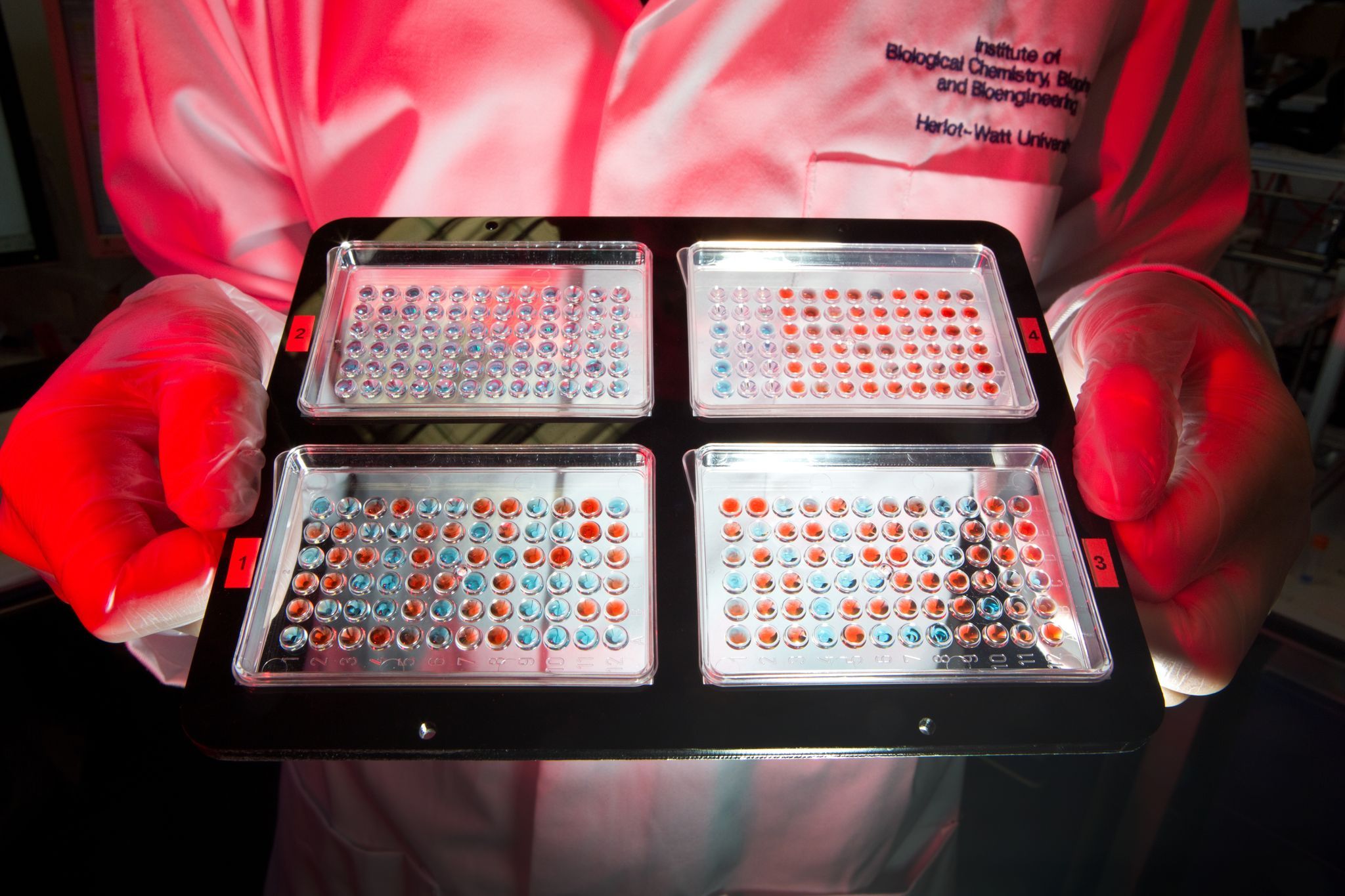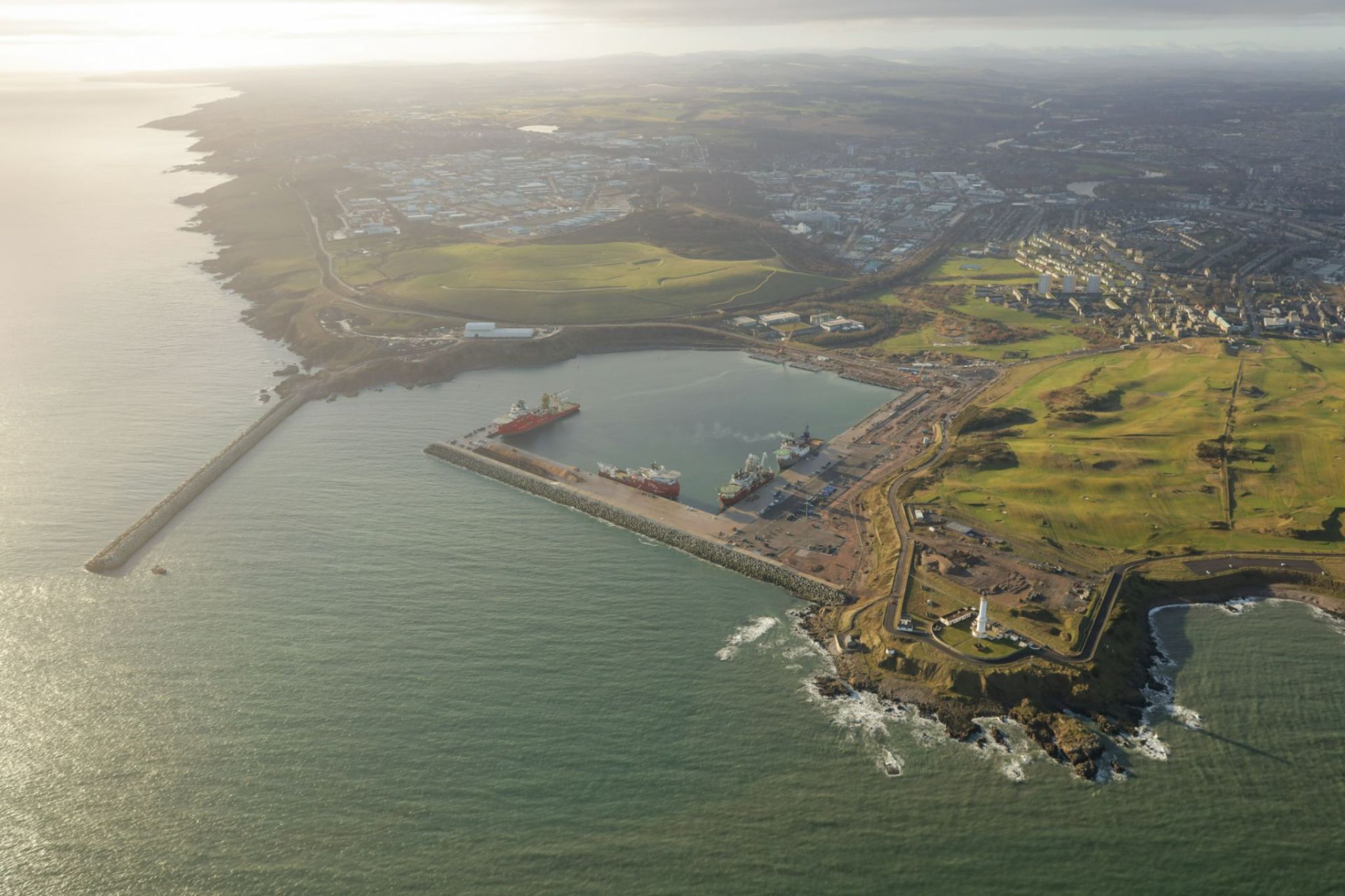The Strathclyde Aerospace Innovation Society (StrathAIS) was founded in 2019 and is the University of Strathclyde's largest aerospace society.
About StrathAIS
The Strathclyde Aerospace Innovation Society (StrathAIS) was founded in 2019 and is the University of Strathclyde's largest aerospace society, with over 80 students from across all the engineering departments at Strathclyde university. StrathAIS' mission acts as a platform for students to grow as engineers and leaders through participating in large-scale extracurricular projects in rocketry and satellite design.
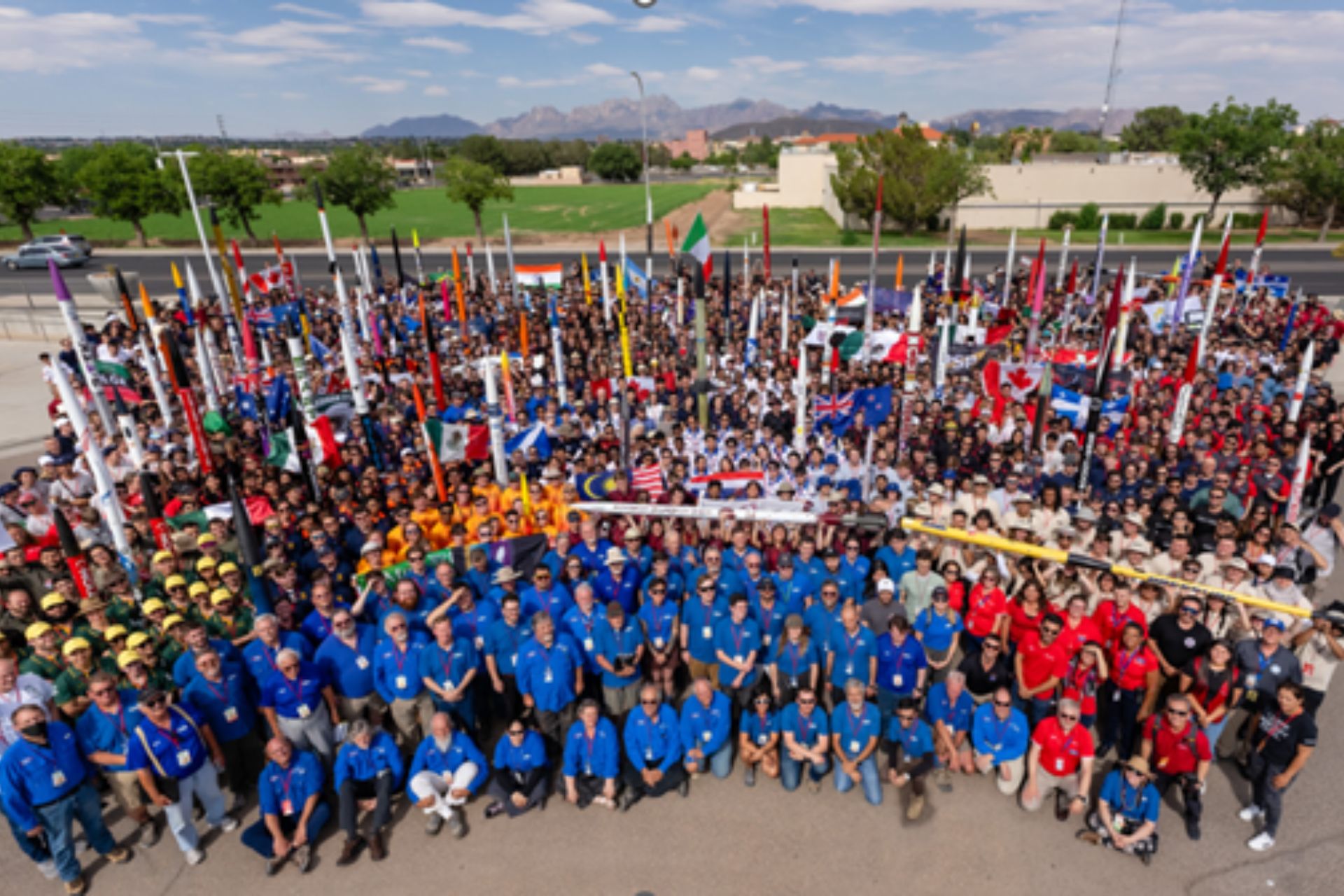
Official spaceport America cup full team photo 2023
© StrathAIS
Can you share some of the work the society does?
Over the past two years we have shifted to practical projects which are more applicable to the industry.
Our rocketry team competes in the Spaceport America Cup Competition, which is the largest students' rocketry competition in the world. For this contest we design and build a high-powered rocket that we launch with the aim of reaching 10,000ft. We have competed twice, placing 23rd out of 158 teams in 2023.
For the 2024 competition we are building a smaller rocket which will be launched in Scotland in March 2024 and one larger rocket to be launched in New Mexico, USA for the Spaceport America Cup.
StrathAIS is the only Scottish team that competes in the spaceport America cup and works hard to promote Scotland and its space industry internationally.
Our satellite design team is working on our long-term flagship project 'STRATHcube'. In collaboration with the Aerospace Centre of Excellence at the University of Strathclyde, the 'STRATHcube' project was founded in 2020 with the aim of being the first Scottish student-built satellite to address the need for sustainable and responsible use of space.
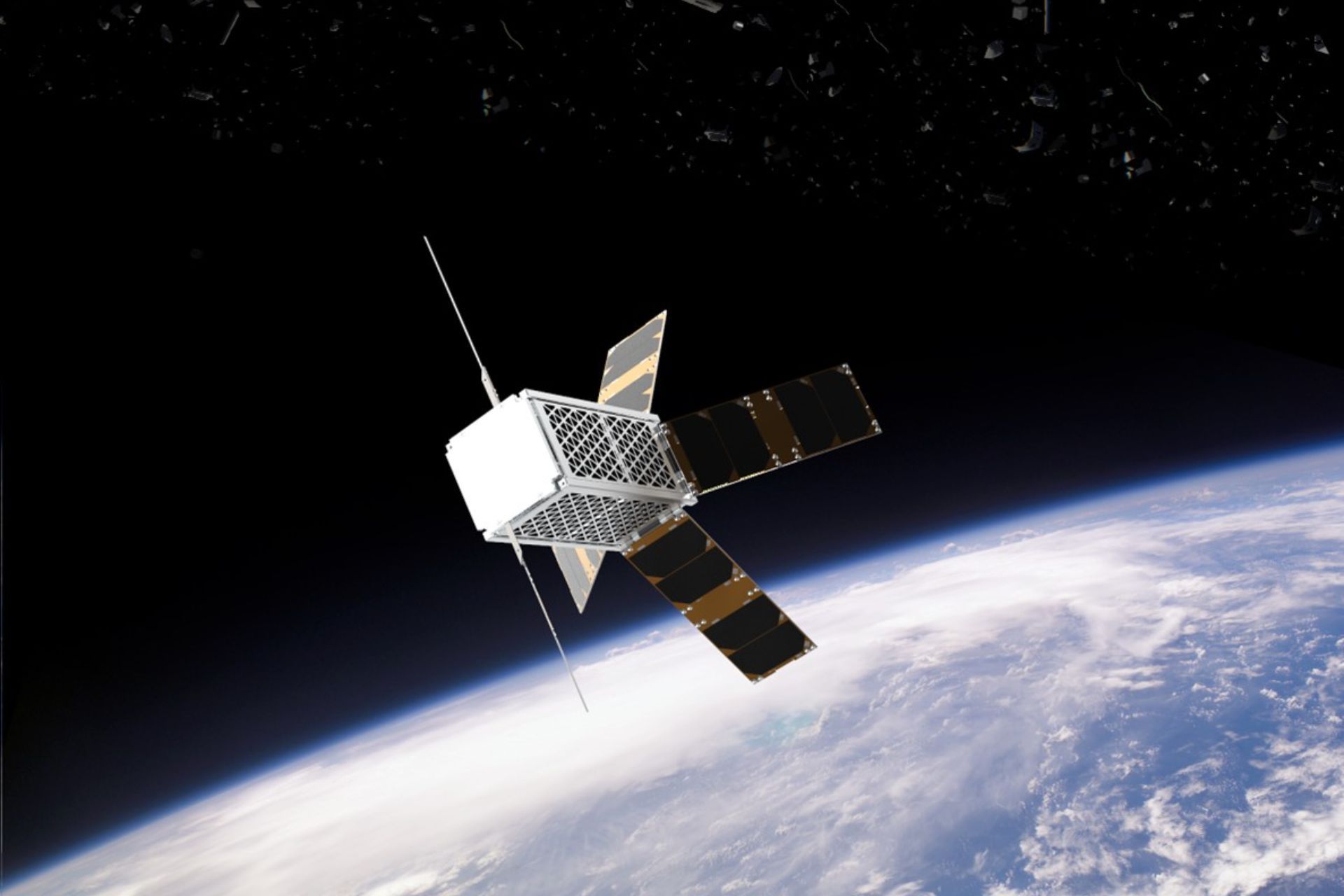
STRATHcube in orbit
© StrathAIS
Can you share some examples of groundbreaking aerospace innovations initiated by the society?
There are about 18,000 tracked objects and many smaller pieces of debris in low Earth orbit, creating a high risk of collisions that could lead to a chain reaction, known as Kessler syndrome, where satellites crash into each other. This scenario was depicted in the 2013 movie "Gravity." To prevent this, we need a strong plan to track and reduce debris in orbit.
Our STRATHcube project is developing new technology to help with this. It tests a system that could be scaled up to handle the growing space debris problem. The main instrument on STRATHcube can track debris as small as 10 centimetres. This will demonstrate the effectiveness of the technology.
The CubeSat is designed to burn up completely when it re-enters the atmosphere at the end of its mission. During re-entry, sensors will collect data on how it breaks up. This information will help design future satellites to ensure they also burn up entirely, preventing them from becoming space debris.
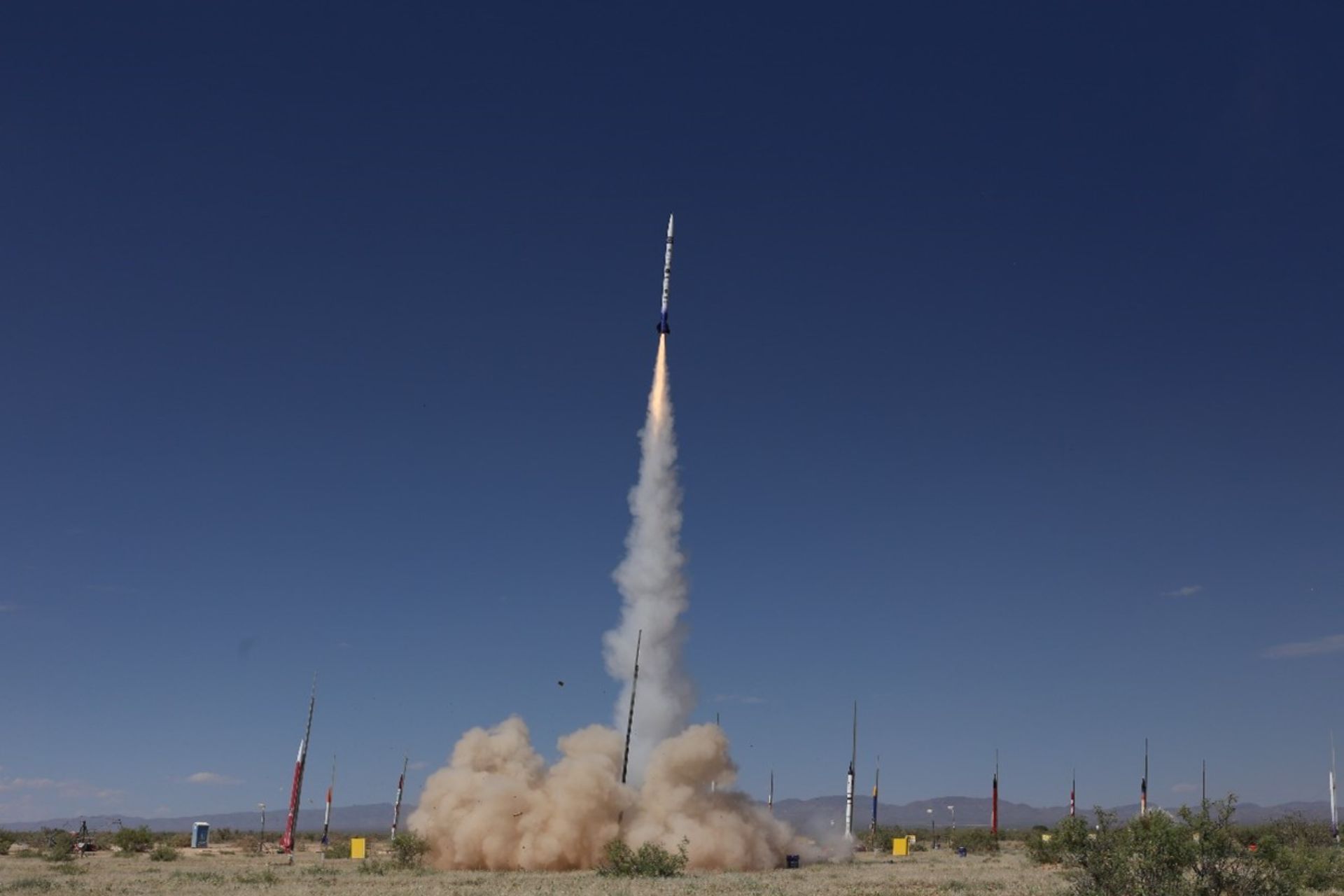
Launch photo of ‘Strathosphere MK II’ rocket at the spaceport America cup 2023
© StrathAIS
How does the society help connect students with the industry?
StrathAIS actively collaborates with leading aerospace companies in Scotland, such as SaxaVord Spaceport and Spirit AeroSystems, as well as the University of Strathclyde Engineering faculties and the Aerospace Centre of Excellence to maximise collaboration in the industry and raise awareness of potential future aerospace career paths for students.
Our team hopes to expand our aerospace network and create sponsorship and collaboration agreements with more companies.
To find out more about StrathAIS visit StrathAIS LinkedIn page.
